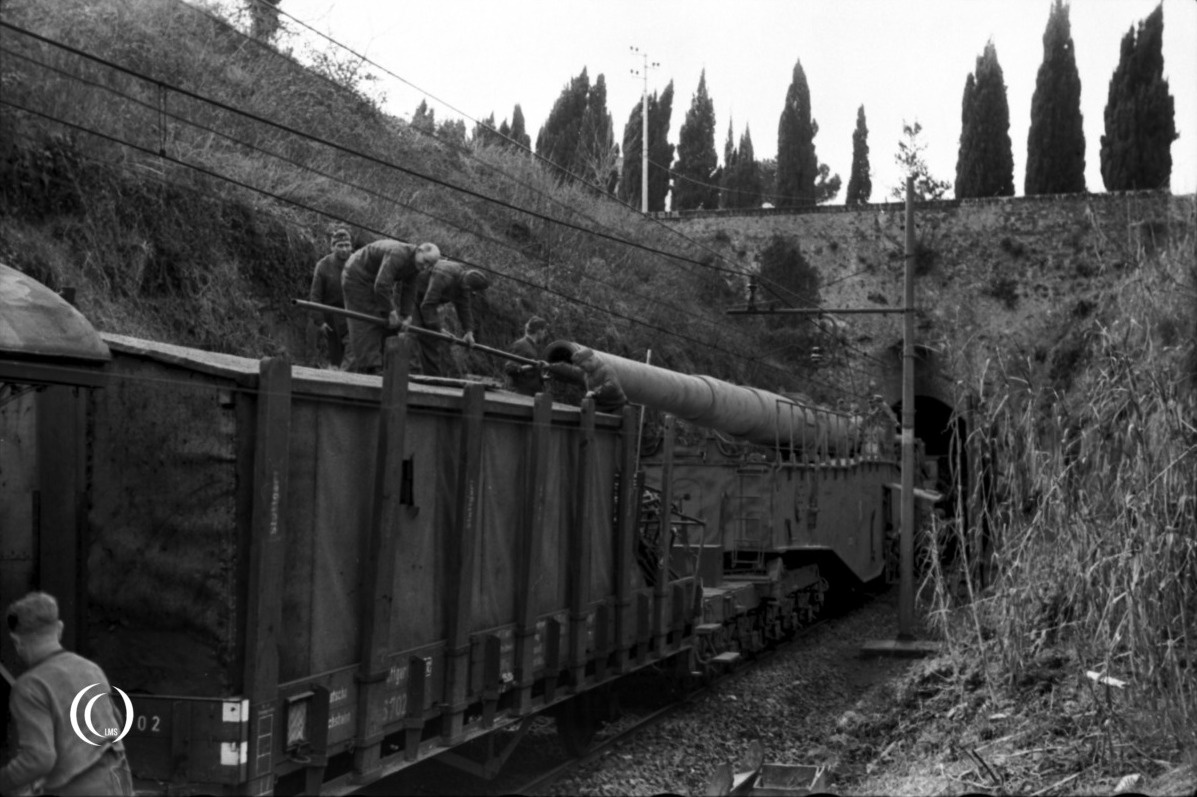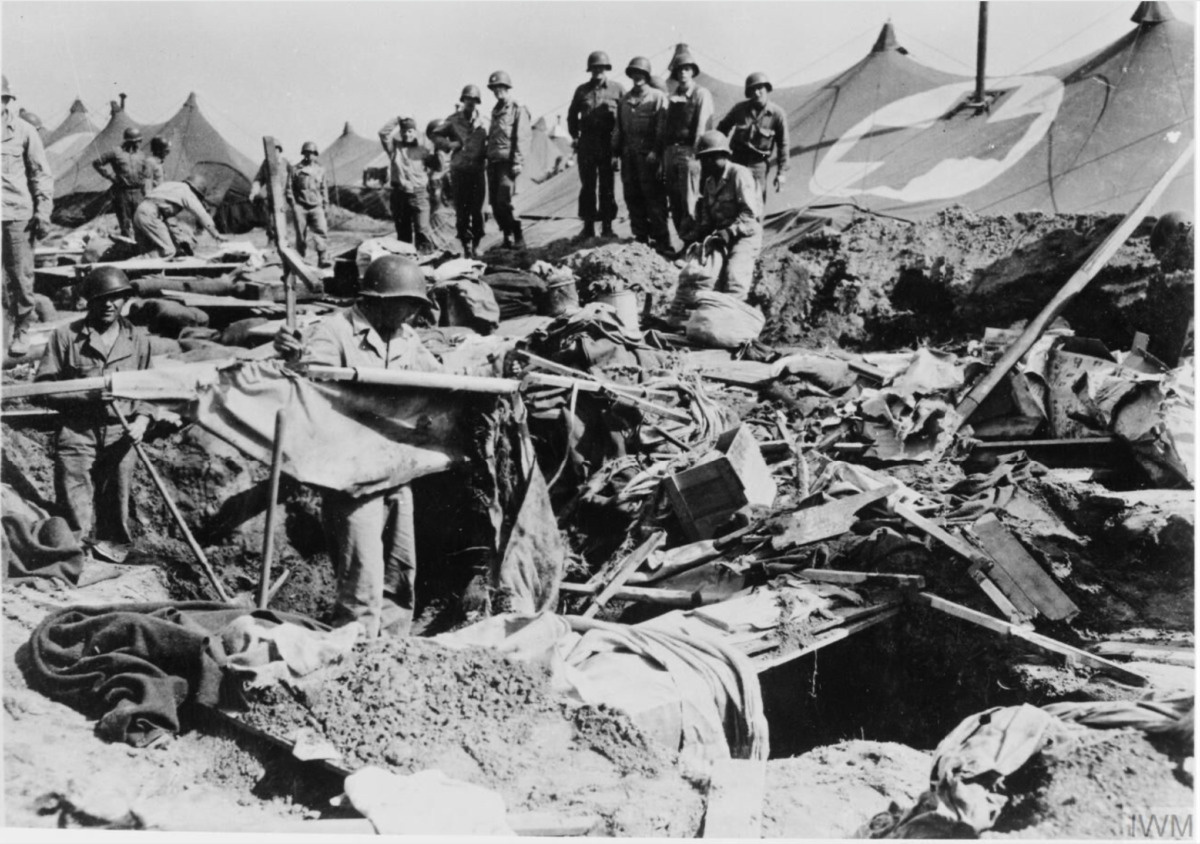
The tunnel at this location was used by the German Army in World War Two to conceal the Krupp K5 E 280mm Railway Guns “Leopold” and “Robert”, during the Battle of Anzio. From Februari 5th 1944 the guns targeted the beachhead between Anzio and Nettuno approximately 30 kilometers away to destroy the initially 35.000 men strong Allied force that had landed there from January 22nd 1944 during an amphibious assault (Operation Shingle) and eventually drive them back into the sea.
Battle of Anzio
Stationed here under the Command of Oberst Friedrich Rudolf Filzinger, the K5 E railway guns would move out of their hideout, fire at specific targets that were passed by German artillery observation posts and then move back into the tunnel again to hide them from possible Allied aerial retaliation. While the Allies were well within the range of the German K5 guns, they themselves were out of reach for the much lighter Allied artillery guns like the American 155mm “Long Tom”, which had a maximum range of 23 kilometers.

While the Allied forces were kept pinned down on the beach by the German Wehrmacht after the landing, the massive 280mm shells of the guns wreaked havoc among men and material on the beach and even among Navy vessels within their range that tried to supply the troops. As the Allies tried to uncover the gun’s position (unknowing there were two), the situation turned into a deadly cat and mouse game to find and destroy “Anzio Annie”.
Advance to Rome

When Allied reconnaissance planes looking for the guns saw German soldiers run for shelter into a railway tunnel in the suspected area, their position was given away. The Allies started to bomb the area, although the guns remained fairly safe in their tunnel. But when the Allies finally broke through at Monte Cassino on May 13th and started to advance towards Rome, the railway guns were forced to leave their position.
Capture
Leopold and Robert fired their last shells on May 18th 1944 and subsequently escaped along the coastal railroad to the North, but wouldn’t get far. After the Allies liberated Rome, both guns were discovered on a railroad siding in the Italian town of Civitavecchia, on June 7th 1944 (picture above). Railway gun “Robert” had been partially destroyed by its crew before it surrendered and “Leopold” was also damaged, but less severe.
After the War

K5 E gun “Leopold” was shipped to the United States and is preserved at the US Army Ordnance Museum in Fort Lee (Petersburg, Virginia). The fate of K5 E gun “Robert” is unknown, but some sources say the gun was used by the US Army for spare parts to repair “Leopold” after she was captured.
Another Krupp K5 E railway gun like the Anzio guns is on display at the Batterie Todt Museum in Audinghen, France. Together with the one in Fort Lee, these are the only two known surviving K5 Railway guns.
Visit
You can see the tunnel along the Via Anagnina (sp511) Southeast of Rome, Italy. Use our location marker for further directions.

Is there any pictures of the entrance to the bunker or the insides, I know that the railroad line ended in Frascati center, however as I lived there before, I saw marks after rail road tracks leading through the parking lot into the mountain.